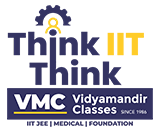Transforming Medical Education in India: The Impact of NEET
 Posted On
Posted On
116 total views, 1 views today
In 2013, India ushered in a significant change in its medical education landscape with the introduction of the National Eligibility cum Entrance Test (NEET). Designed to standardize the admission process and promote meritocracy, NEET aimed to address the complexities and inequalities prevalent in medical admissions. While it brought forth several positive transformations, NEET’s impact on the quality of medical education in India remains a subject of intense scrutiny and debate.
Streamlining the Admission Process: NEET marked the end of the era of multiple entrance exams conducted by various state and private institutions, ushering in a new era of standardization. This overhaul relieved students from the burdensome task of navigating through a plethora of exams, creating a more efficient and transparent system. By eliminating redundant processes, NEET not only simplified the admission process but also ensured fairness and equal opportunities for all aspiring medical students, regardless of their backgrounds.
Enhanced Competition and Academic Excellence: The advent of NEET intensified the competitive landscape of medical education in India. With admission to prestigious medical colleges contingent upon performance in this rigorous examination, students found themselves compelled to enhance their academic prowess. Consequently, NEET acted as a catalyst for academic excellence, motivating students to strive for higher standards of achievement. This heightened competition not only raised the bar for aspiring medical professionals but also challenged institutions to maintain educational standards commensurate with the caliber of incoming students.
Standardization of Curricula and Teaching Methodologies: NEET brought about a paradigm shift in medical education by standardizing syllabi and curricula across institutions. This move ensured that students received a consistent level of education, irrespective of their geographical location or institutional affiliation. Furthermore, NEET’s emphasis on evaluating students’ ability to apply knowledge effectively prompted a departure from traditional rote learning methods towards more holistic and comprehensive teaching approaches. As a result, institutions began prioritizing student-centric methodologies aimed at fostering critical thinking and practical skills development, thereby enhancing the overall quality of medical education.
Challenges and Criticisms: Despite its many merits, NEET has not been without its share of challenges and criticisms. One of the primary concerns raised by critics is the perceived overemphasis on theoretical knowledge at the expense of practical skills. While NEET assesses candidates’ proficiency in core subjects, some argue that it fails to adequately evaluate their practical aptitude, essential for competent medical practice. Additionally, there have been concerns regarding the socio-economic barriers faced by students from marginalized backgrounds, who may lack access to adequate resources and support systems to excel in such high-stakes examinations.
Closing Thoughts:
The introduction of NEET heralded a new era in Indian medical education, characterized by standardization, meritocracy, and enhanced academic rigor. By streamlining the admission process, fostering healthy competition, and promoting innovative teaching methodologies, NEET has undoubtedly contributed to the overall improvement of medical education in India. However, it is imperative to address the challenges and criticisms associated with NEET to ensure that the pursuit of excellence remains inclusive and equitable. As India continues its quest for excellence in healthcare, it must strike a balance between standardized assessments and the holistic development of future medical professionals, thereby nurturing a generation of competent and compassionate healthcare providers.




